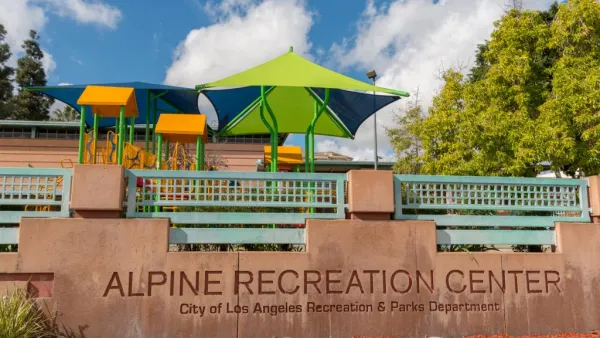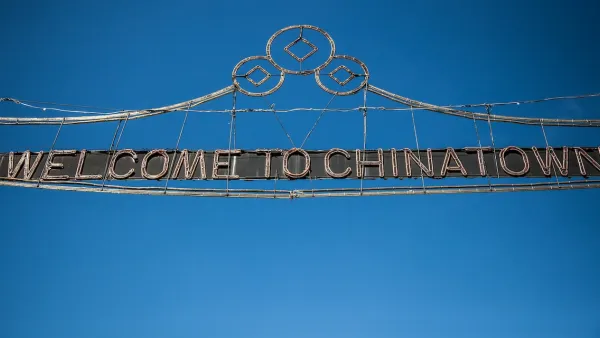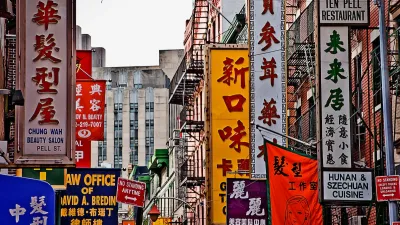A Chinese architecture team has proposed a futuristic star-shaped city of 15,000 that would visit cities around the world and change the stereotypes of Chinatowns.
"The mobile town would be home to 15,000 people, and would include health resorts, sporting facilities, freshwater lakes and a digital cemetery to remember its dead.
MAD intends that the town would be transported to cities around the world. It would be fully sustainable, producing its own energy and recycling its own waste without needing to use its host cities' resources.
In a statement, MAD's architects said: 'The old China Town is a historical theme park that poisons the urban space. There must be a shock therapy to remedy this situation.'"
FULL STORY: MAD architects redesign Chinatown as a 3D star

Planetizen Federal Action Tracker
A weekly monitor of how Trump’s orders and actions are impacting planners and planning in America.

San Francisco's School District Spent $105M To Build Affordable Housing for Teachers — And That's Just the Beginning
SFUSD joins a growing list of school districts using their land holdings to address housing affordability challenges faced by their own employees.

The Tiny, Adorable $7,000 Car Turning Japan Onto EVs
The single seat Mibot charges from a regular plug as quickly as an iPad, and is about half the price of an average EV.

Seattle's Plan for Adopting Driverless Cars
Equity, safety, accessibility and affordability are front of mind as the city prepares for robotaxis and other autonomous vehicles.

As Trump Phases Out FEMA, Is It Time to Flee the Floodplains?
With less federal funding available for disaster relief efforts, the need to relocate at-risk communities is more urgent than ever.

With Protected Lanes, 460% More People Commute by Bike
For those needing more ammo, more data proving what we already knew is here.
Urban Design for Planners 1: Software Tools
This six-course series explores essential urban design concepts using open source software and equips planners with the tools they need to participate fully in the urban design process.
Planning for Universal Design
Learn the tools for implementing Universal Design in planning regulations.
Smith Gee Studio
City of Charlotte
City of Camden Redevelopment Agency
City of Astoria
Transportation Research & Education Center (TREC) at Portland State University
US High Speed Rail Association
City of Camden Redevelopment Agency
Municipality of Princeton (NJ)





























